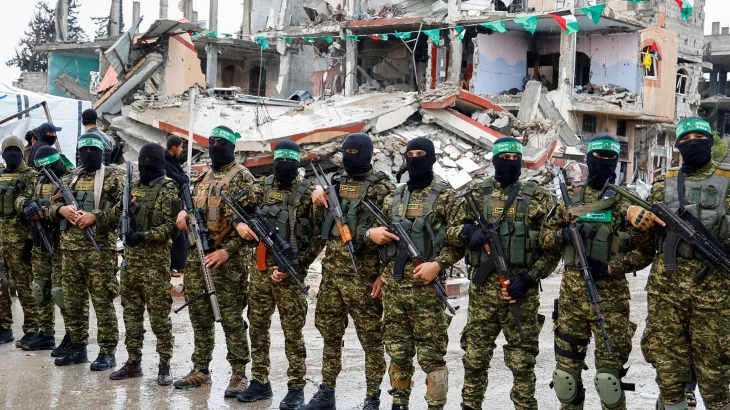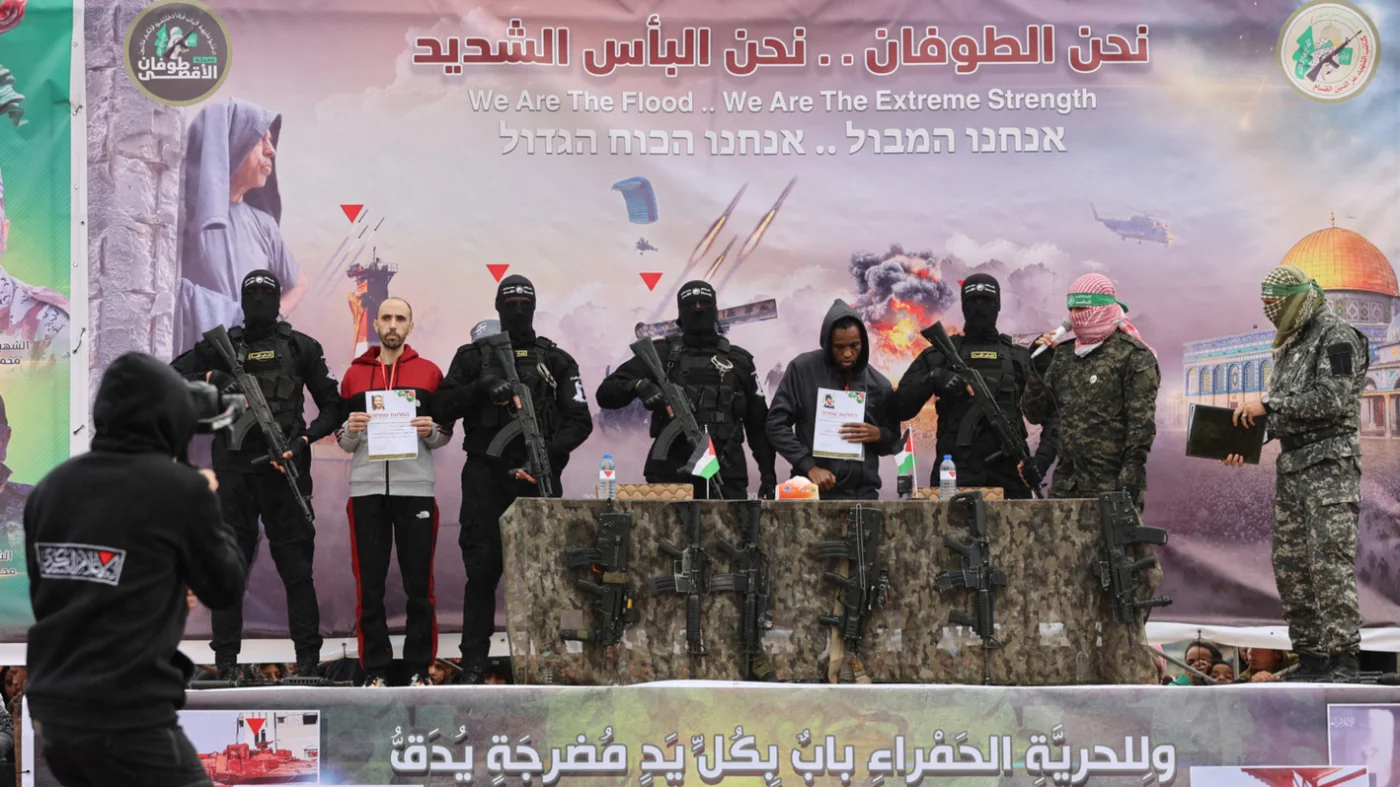Palestinian militant group Hamas released two Israeli captives on Saturday, marking another exchange under the ongoing ceasefire deal that has seen captives freed on both sides. The truce, which began on January 19, has led to the release of multiple captives and detainees but remains fragile as tensions persist.
The two freed captives, Tal Shoham and Avera Mengistu were handed over to the Red Cross in Rafah, southern Gaza, after being paraded on stage by masked militants. They were then transferred into Israeli military custody before being returned home.
The exchange took place over an emotional period for Israel, where the remains of Shiri Bibas, a captive whose fate had been widely followed, were confirmed to have been returned. Bibas and her two young sons had become symbols of the Israeli captives’ ordeal since the war began.

In a separate exchange, four more Israeli captives were released from central Gaza’s Nuseirat later on Saturday. The Hostages and Missing Families Forum, an Israeli campaign group, listed the names of those freed, including Eliya Cohen, Omer Shem Tov, Omer Wenkert, and Hisham al-Sayed.
Sayed and Mengistu had been held in Gaza for nearly a decade before their release.
The Palestinian Prisoners’ Club, an advocacy group, stated that 602 Palestinian prisoners will also be released as part of the deal, most of whom were Gazans arrested after the war began. Some were deported outside Israel and Palestinian territories due to heavy sentences.
The ceasefire has led to the release of 21 living Israeli captives in exchange for over 1,100 Palestinian prisoners so far. However, it also saw the transfer of captives’ bodies, sparking further controversy.
Hamas initially claimed that the remains of Shiri Bibas were among those returned on Thursday, but Israeli officials later determined they were not hers, leading to a wave of grief and anger. Hamas later admitted the possibility of an error, blaming it on Israeli airstrikes.
Following a second transfer of remains, the Bibas family confirmed on Saturday that Shiri had been killed in captivity.
Israeli Prime Minister Benjamin Netanyahu, under increasing domestic pressure, vowed that Hamas would pay for “violating the agreement”.
On October 7, when Hamas launched its attack on Israel, 1,215 people were killed, according to Israeli figures. In response, Israel’s military campaign in Gaza has resulted in the deaths of at least 48,319 people, primarily civilian women and children, according to the health ministry in Palestine, figures that the United Nations, alongside numerous other organisations and bodies, considers reliable.
Despite ongoing exchanges, 65 captives remain in Gaza, including 35 confirmed dead, with uncertainty surrounding the future of the ceasefire and potential further negotiations.


 Trending
Trending 